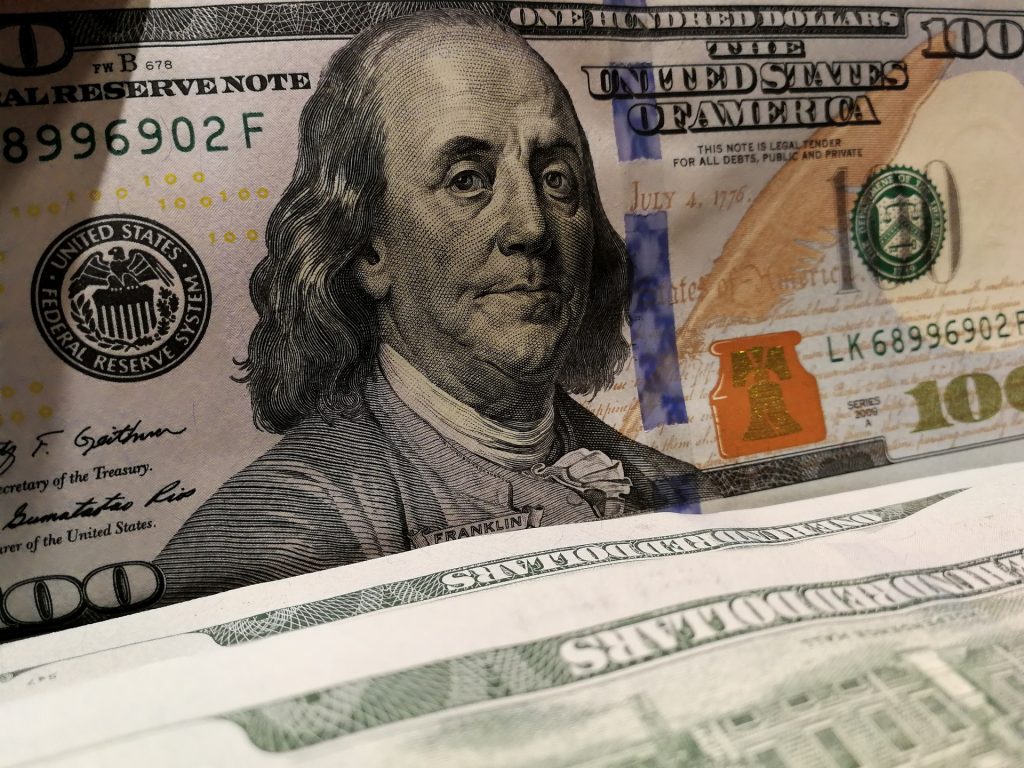Introducing ‘Homo Economicus’
Everybody recognises that the prevailing economic situation is deeply unjust. The wealth gap between rich and poor has become utterly absurd, both within countries, and between nations. This poverty doesn’t just spring out of nowhere. We have more than enough food and more than enough goods to go around. In the modern era, poverty is engineered by mainstream economic science. Why this happens, and how we can fix it, are what must be analysed, if we are ever to find a solution.
A careful study of traditional economic models reveals one core reason, perhaps the core reason: blinded by a desire to accumulate wealth, mainstream economics has a deeply erroneous view of humanity.
Its grotesque view of humanity centres around its view of humans in its economic models. It calls this ‘model citizen’ Homo Economicus – the Economic Man. As a theoretical representation of the behaviour of ordinary people, it forms the basis of classical and neoclassical economic models. These systems have been the prevailing paradigms in Western economies for centuries. According to this concept, the aim of any economic agent, (i.e.: human), is to satisfy its needs in a world where resources are scarce. It seeks to maximise its profit as a producer, and maximise its utility from goods and services as a consumer. The ‘Economic Man’ is depicted as a creature of coldly calculated selfishness, dispassionately furthering its self-interest even if that comes at the expense of others. Such considerations are not computed by our Homo Economicus.
This notion of uninhibited individualism by mainstream economics has created the monster it once simply imagined. It has turned us all into psychopaths guided by the love of material wealth. The nightmare has become a reality. And while most scholars in mainstream economics recognises the falsity of this view of humanity, they persist in using it in their models. How did this happen, and what should a true Homo Economicus look like?

The rise of materialism has led to widespread discontent in mankind
The Rise of the Economic Man
For a very long time, religious thought formed the bedrock of western societies. Religious views on morals and ethics were a part and parcel of mainstream life. However, over recent centuries, religion has declined. The growing discontent of the masses increased over hundreds of years, as they perceived the religious clergy as hypocrites, the cause of dissension, and religion as irrational and anti-scientific. Such discontent is, to a large extent, understandable. The Bible has many questionable statements that seem to contradict science, and its concept of God as being both 1 and 3 has long been a head-scratcher. Islam, its major contender, is seen simply as an oppressive and radical faith, partly because of the actions of its extremists. Moreover, the gradual erosion of morals from religious leaders, who themselves sacrificed their religious principles for worldly gain have played a pivotal role in religion’s decline.
The roots of this transformation in the West can be traced back to the 12th century during which Christendom was already witnessing a deep transformation of its system of values. Religious taboos, primarily concerning money, were gradually being eroded. Indeed, throughout the Middle Ages, the great controversy surrounding usury (interest) in the West is considered by contemporary historians like the “labour pains of capitalism” [1]. The historian Jacques Le Goff highlighted the strong resistance of the Church, supported by the scholastics, to the surge of usury, multiplying the condemnations and the prohibitions in line with its growing use in society. Over time, the practice of lending at interest was gradually excused and tolerated, provided it honoured certain forms and limits.
Alas, the moral authority of the Church was undermined by its own moral decadence. The high clergy was living in luxury while exhorting the faithful to poverty. Ecclesiastical courts still condemned usury, but the Church was enriched by selling ‘indulgences.’ They did this by relaxing the religious condemnation of interest, and leaving a chance for the usurer to regain his personal salvation through paying penance. In other words, these proto-capitalists commodified entrance into Paradise in exchange for a few gold coins! Little by little, a more flexible morality embraced all the functions and conditions of society. The Church itself thereby accommodated the West’s emerging capitalism, and took advantage of it to consolidate its financial power.
What needs to be understood is the paradigm shift in mentality. With the development of usurious activities, it was not only a new class which was born, rather a new human and economic subject appeared, which undermined the very foundations of medieval civilization.
The Church accommodated the West’s emerging capitalism
The second phase in the development of our pernicious economic theory was the assertion of self-interest in all our judgments and attitudes towards others. Proclaiming personal gain to be the real driving force behind apparent goodness proved to be a central tenet for the French Moralists such as La Rochefoucauld or Jacques Esprit. According to these authors, we all are looking for personal benefit in every instance. Even positive values are in fact egotistical at heart. For instance, by using the ‘craftiness’ of faux-selflessness, man seeks only to get what he wants while claiming never to have tried to attract the praise of others. This paranoid philosophy threw suspicion onto the purest actions of sincerity, friendship, and mercy. Everything is counterfeit and everything we do is motivated by self-love. Therefore, the union between men is based on a ‘mutual deception.’ The sincere human being is only a disguise, hiding his true nature of hypocrisy and falsehood. [2]
Philosophers and economists of the following centuries (Bernard Mandeville, Adam Smith or Jeremy Bentham [3]) merely followed the intellectual tradition that the Moralists and political thinkers left. In copious literature of the 16th century, new forms of individualism were sanctified, and individual purposes gradually detached from collective duties. While religion provided teachings about serving community, and thinking beyond one’s individual self-interest, this new world regarded the Individual as more important than the Collective.
However, this shift in perspective came at a grave cost. As we gave up religion, we also rejected our moral and spiritual grounding out of hand. But what if this was a mistake? What if religion indeed was correct? What if morals were real, and could be selfless? What if spirituality was legitimate, and not mere self-illusion? How then would a Homo Economicus look?
Islam has an answer. While Capitalism is in the throes of a crisis, widely condemned for its crude and self-centred values, Islamic morality is driven by a completely different set of values. Islam recognises the divine responsibility to take care of others, to act selflessly for others out of the love of God. It allows us to spend on things we like, rather than being driven by the cold, hard dictums of self-interested ‘rationality.’

In fact, it doesn’t make sense to talk of rationality without knowing what one’s ultimate purpose is. If there is no God, then it is rational to simply live a hedonistic life, chasing money and fulfilling every base desire that comes to mind. But if God exists, then we have a purpose, and we follow guidelines to create inner and outer peace.
Indeed, if God exists, it would be deeply irrational to be selfish and money-minded, this taking us away from God and true contentment. Thus, when the creators of Homo Economicus told us to be rational by maximising our utility, they failed to bear in mind that what is best for us is based entirely on our view of humanity is. If religion is right, then rationality dictates that we must be good, selfless people; if it is false, then there is no harm in being the exact opposite.
Loans Sharks as Functional Psychopaths
But let us deal with the cards as they dealt. We live in an atheistic world, where Homo Economicus reflects a plausible avenue in the atheistic view of life. There is nothing to stop us fulfilling your desires as you please – morality is after all, an evolutionary illusion. Unfortunately, this purely selfish Homo Economicus is a functional psychopath. In other words, by separating economics from traditional morality, people are modelled to act only according to a cost-benefit calculation that serves their own ends – others be damned. Economic gain is the sole motivation. For example, if the Economic Man cares nothing for ethics or others’ welfare, he will lie, cheat, steal, even kill, whenever it serves his material interests. The Quran emphasises the same point when it says:
“Those who devour interest do not rise except as rises one whom Satan has smitten with insanity.”
In today’s world, ‘insanity’ or ‘madness’ are notions with many meanings. They most often indicate behaviours qualified as abnormal. Depending on the context, time and environment, they can connote the loss of reason or common sense, the opposite of wisdom, a marginal or deviant behaviour, or even an obsession.
In the present verse, it conveys a sense of mania. Just as a manic person does not see the consequences of his actions, similarly those who lend money at interest become careless of the consequences. They keep in view only their own immediate interests and do not care, and in fact generally become incapable of caring, for the great harm which they do to society and the world at large. Interest also introduces a touch of insanity because it weakens the sense of goodness and beneficence in man by making him over-engrossed in money-making.
Wealth accumulation has become the highest aspiration for many individuals today
This is not just theory. A study in Japan showed that Homo Economicus makes up only a minority of the population, but a minority with a range of unusual personality traits, including psychopathy. According to the study, all such subjects were highly intelligent, believed that others should be manipulated for their own ends, while caring little for their well-being. In a nutshell, the study finds such people are driven to excel and to dominate others, while being able to control their impulses to achieve longer-term goals. In other words, Homo Economicus is the prototypical member of the social and economic elite. [4]
Curiously, this description perfectly fits the figure of the loan shark, who acts as a consummate personification of the Homo Economicus. Indeed, the loan shark is merely the extreme version of how ordinary banks work – leaving you straddled in debt for the profit of the money printers.
This madness has not gone unnoticed. In the Economic Possibilities for Our Grandchildren, the famous economist John Maynard Keynes stated:
“When the accumulation of wealth is no longer of high social importance, there will be great change in the code of morals. We shall be able to rid ourselves of many of the pseudo-moral principles which have hag-ridden us for two hundred years, by which we have exalted some the most distasteful of human qualities into the position of the highest virtues. (…) The love of money as a possession (…) will be recognized for what it is, a somewhat disgusting morbidity, one of those semi-criminal, semi-pathological propensities which one hands over with a shudder to the specialists in mental disease.”
And with good reason: loan sharks and psychopaths share disturbing common characteristics. They lack remorse or guilt for their actions; they have absolutely no concerns about the consequences their actions may have for others, even if they are devastating. Indeed, the many personality traits manifested by them are closely associated with their lack of empathy for others and their inability to conceive of the mental and emotional world of others. And those that do, don’t care.
Interestingly, the typical psychopath is never psychotic. They are not generally the victims of hallucinations or of delusional ideas that make them lose touch with reality. If our Economic Man hurts someone, he knows very well what he is doing, and is morally responsible for his actions. The problem is, he just doesn’t care.
Humanizing Homo Economicus
The fervent advocates of Homo Economicus argue that the concept has the advantage of simplicity, since it is able to explain many facts by applying a limited number of assumptions. However, its abstraction undermines its utility. There is overwhelming evidence that in all societies people are altruistic, with charity and philanthropy being facts of life. One must admit that there is within us the impulse that drives us to generosity and to adopt sympathy towards our fellow man.
Again, Islam differs on this issue in that it gives a much more realistic picture of human nature. From a societal point of view, a practicing Muslim must only invest in risk-sharing investments, keeping his distance from interest-based transactions. This does not mean that Islam teaches us to ignore our needs or shun making a profit. However, Islam recognizes the dual tendency of human beings:
“Surely, we have created man in the best make; Then, if he does evil deeds, We degrade him as the lowest of the low.”
According to Islam, man is born with a pure and unsullied nature, and a natural tendency to do good. However, he has also been given a large measure of freedom of will and action to mould himself as he chooses. He has been endowed with great natural powers and qualities to make unlimited moral and material progress; to rise so high spiritually as to become the mirror in which Divine attributes are reflected. But if he misuses God-given powers and attributes, he can sink even lower than beasts and becomes the Devil incarnate. Simply put, the verse signifies that man is blessed with great potentialities for good or evil.

According to religion, humans can only find true contentment in a relationship with God
Religion goes one revolutionary step further, cutting at the root of the materialistic Homo Economicus. It makes it our self-interest to do good to others. How? Because it tells us that our true welfare is our spiritual welfare. In order to foster our relationship with God, we must seek to uplift those around us, to serve the creation of the Our Creator. This is the only way to ‘get ahead’, while our wealth or prestige means little in the final analysis:
“And everyone has a goal which dominates him; vie, then, with one another in good works.”
By humanizing the Homo Economicus, Islam creates an atmosphere in which charity is placed at the level of duty. By remaining attentive to the rights of others, it ensures that the poorest segment of the population is not deprived of their fundamental right to live decently:
“And in their wealth there was a share for those who asked for help and for those who could not.”
In fact, Islamic teachings emphasize the necessity of giving rather than taking. “The upper hand is better than the lower hand,” said the Prophet Muhammad, peace be upon him, contrasting the role of giver and receiver. Indeed, the prohibition against lending on interest is preceded by a long exhortation to exercise charity. When a person becomes accustomed to spending his wealth in charity and alms, it becomes easier for him to lend money free of interest.
We can already see that this Homo Islamicus is already one that prioritises community over individuality. This makes sense, as Man is by his very nature social. In order to live together, he can achieve nothing without cooperation and mutual help [5]. Human beings are conceived to be like the organs of a same body so that the whole body should sense pain if any organ suffers from discomfort. And in order to generate a true sense of compassion in the heart of humanity, another verse of the Holy Quran enjoins man to sacrifice his own interests for the good of his fellow men:
“You cannot attain to righteousness unless you spend out of that which you love; and whatever you spend, Allah surely knows it well.”
All religions advocate giving to those in need [6]. Even those who do not follow any religion can be very generous. But the teaching that a man should be willing to sacrifice that which he truly loves is peculiar to Islam.

True, there are dangers attendant upon individual exercise of help and sympathy. The giver is sometimes prone to make a show of obligation while the receiver is apt to develop a sense of inferiority. Islam, however, guards against both. He who tries to make a show of generosity is told that, by so doing, he loses all claim to merit in the sight of God and is guilty of a heinous sin. Islam directs that as far as possible, individual help should be rendered in a manner that the right hand should not know what the left hand does. Islam emphasizes that neither the giver nor the receiver should be actuated by baser and low motives.
Until quite recently, researchers from different disciplines have almost all attempted to explain the essence of life by following the doctrines of atheist materialism. But in the context of Capitalism’s crisis, a radically new vision of human nature emerges from religion, holding out the promise of revolutionising the way we organise our economic, social and environmental relationships over the next few centuries: one based on kindness and selflessness, rather than maximising our utility as a consumer and profit as a producer.
Homo Economicus vs. Homo Islamicus
What can Homo Economicus say to this Homo Islamicus? The latter you would gladly let into your home; the former you would teach your children to stay away from. And yet, our economic models are based upon the psychopathic Homo Economicus. Is it any surprise then that we are being turned into callous, pleasure-seeking machines? Is it any surprise that society is fracturing, one against the other, all in the pursuit of money? We are given Capital as our god. Every class, every group, now struggles with each other in a Darwinian fight for existence. Where is the place for love, sympathy, self-sacrifice?
It should be clear now that an economic system cannot be modelled through a purely mathematical, cold-hearted lens. Economics is a moral science in which the paramount element is the intention of economic agents. If a government, guided by a capitalist logbook, changes the incentive structure of society to align with the assumption that human nature is selfish, then one can be sure that human beings will begin to act exactly in that way. The Homo Economicus is thus a self-fulfilling prophecy. The more we follow such a model, the more we become it.
If, however, we avoid modelling society as a loose collection of psychopaths, then we once more give humanity room to breathe. We can then create a system which allows the acquisition of wealth, while having mechanisms to ensure its equitable distribution. We allow for society’s inevitable inequalities while promoting philanthropy. We allow loan-giving, while prohibiting profiteering.
The Islamic economic system does just this, with its perfect balance between individual achievement and collective responsibility. It eliminates debt-based finance while promoting equity finance. It gives us a marginal wealth tax, while promising divine reward for charity. It ensures that national goods are nationalised, and that markets are kept regulated without undue interference.
As for the individual, it provides a moral and spiritual incentive structure that teaches us to fulfil our responsibilities to others before we start advocating for our rights. The macro-system of beneficent governance thus harmonises with the micro-system of individual virtue, producing a world in which humans are allowed to be human.
Such a world is a better world. But whether Homo Economicus will accept it gladly, remains to be seen.
Watch & Read More:
Article: Meccan Capitalism & The Economic Revolution Of Islam
Article: Is Interest the Opiate of the Masses?
Article: Why Zakat is the Antithesis of Interest
Article: The Forgotten Economic Genius of Umar Ibn Al-Khattab — Islam’s Second Caliph
Article: Islamic Economics vs. Capitalism & Communism
References:
[1] Le Goff, J. (1990), Your Money or Your Life: Economy and Religion in the Middle Ages, Zone Books, New Books, p. 9, transled by Patricia Ranum.
[2] Esprit, J. (1996) Of the Falsehood of Human Virtues (1678), Aubier, Paris, French Edition, p. 309;
La Rochefoucauld, Reflections; or Sentences and Moral Maxims (1664), Maxim no. 89, French Edition.
[3] Mandeville, B. (1732), The Fable of the Bees or, Private Vices, Publick Benefits; Smith, A. (1776), An Inquiry Into the Nature and Causes of the Wealth of Nations; Bentham, J. (1789), Introduction to the Principles of Morals and Legislation.
[4] https://journals.sagepub.com/doi/full/10.1177/0956797614538065
[5] Ahmad, M. N. (1970), « Islamic Economic Order », Review of Religions, p. 149.
[6] See for instance, The Holy Bible, Matthew 5: 42 or Isaias, 58: 7.













5